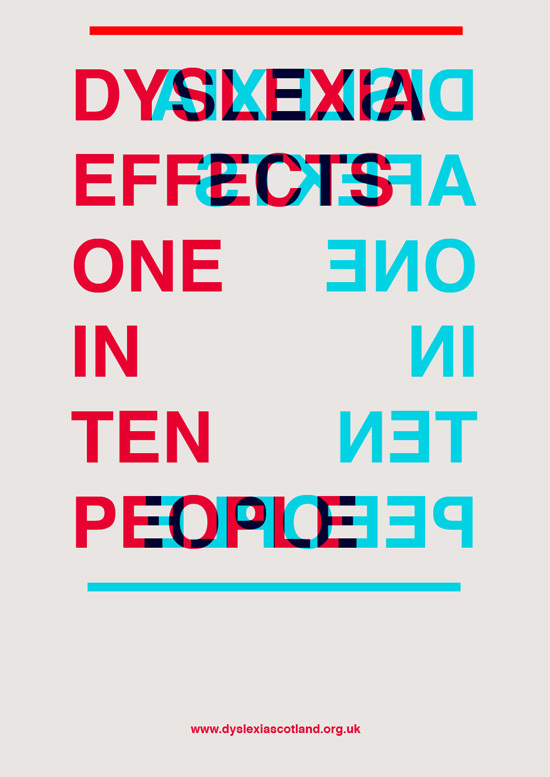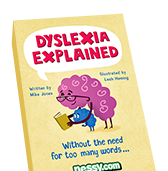
Where can I get more information about dyslexia?...
The British Dyslexia Association is a large charity whose website has valuable information
'Understanding Dyslexia - A Guide for Families’ from the British Dyslexia SPlD Trust:
• for children aged 7-11 years - written by parents with their 8 year old son, click here;
• for children aged 11-16 years - written by a group of young people, click here.
'The Big Picture Rethinking Dyslexia' is a documentary shows how dyslexia can affect people differently. Why not watch it with your child, if they are old enough to understand? Click here to watch.
Drive for Literacy has produced a short video of what it is like to be dyslexic based on real experience . Click here to watch.
Understood, a US organisation, has a free resource where you can learn about how your child experiences their dyslexia according to their age and what they find difficult. Click here.
Made by Dyslexia is a global charity led by successful (and famous) dyslexics such as Richard Branson, their purpose is to help the world properly understand and support dyslexia. They have some useful downloads to explain dyslexia and advocate that “It’s time we all understand dyslexia properly as a different way of thinking, not a disadvantage”.
Dr. Gavin Reid is an international independent educational psychologist, he has published free resources about dyslexia, dyslexia research, learning and motivation and ideas and strategies for parents. He has given us permission to link to his resources so click here to take a look.
The British Dyslexia Association have launched a new information service dylex.io for use on mobile devices that aims to be a one-stop site for everything ‘dyslexia’ whether you are dyslexic yourself, a parent of carer of someone who is dyslexic or a teacher or employer of dyslexic people. We are very happy to be listed as a useful resource.
The International Dyslexia Association has clear fact sheet 'Just the facts' - Dyslexia basics. click here to read.
A friend of dyslexia Assist Charmaine Mckissock has written a great introductory leaflet to explain dyslexia simply click here to read.
Dyslexia may and often does co-occur with other specific learning difficulties such as dyspraxia, dyscalculia and ADHD, further information can be found at here.
Dyslexia Is Our Superpower Podcasts aims to show the world that dyslexia truly is a superpower. Listen to conversations with dyslexics from all walks of life as we focus on the positive aspects of dyslexia and prove one chat at a time that there are many ways to succeed as a person with dyslexia.
Veronica Bidwell, an educational psychologist, has passed on years of expertise in her accessible book with practical advice and information for parents of children with specific learning difficulties. We can highly recommend the chapter on dyslexia and the tips provided. Dyslexia may co-occur with other specific learning difficulties making this book a valuable one stop resource.Things Veronica tells us we can say with certainty about dyslexia:
The characteristic features of dyslexia are difficulties in phonological awareness, verbal memory and verbal processing speed.
Dyslexia occurs across the full range of intellectual ability
Dyslexia is on a continuum ranging from mild to severe. There are no established cut –off points.
Co-existing difficulties may be seen in relation to language, motor coordination, mental maths, concentration and personal organisation. Of course, many non-dyslexic children also have these difficulties.
It is only by looking at a child’s response to good teaching and intervention that we can establish the severity of the difficulty.
Dyslexia is neurological in origin
There is a genetic basis and it tends to run in families
It is estimated that about 10% of the population experience a degree of dyslexia. The earlier we can identify and support the children who are at risk of difficulty the better




This free ebook helps parents understand dyslexia: the positives, the difficulties and what helps click here to download




Podcast sharing dyslexia stories from all stages and walks of life to help parents of Tween/Teenage Dyslexics find practical tips.





This clip explains what working memory is and how this may effect dyslexia.


















